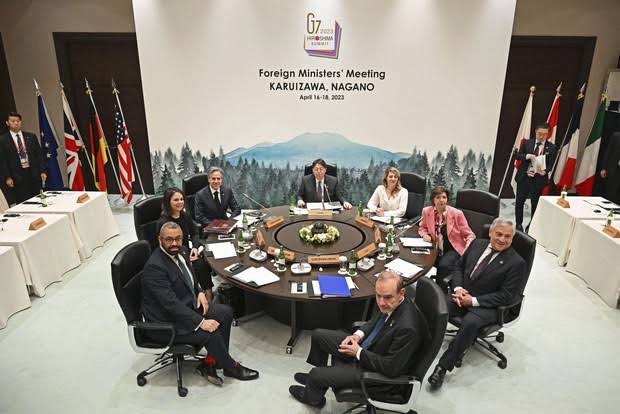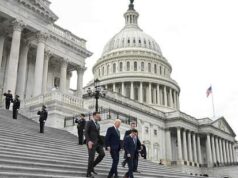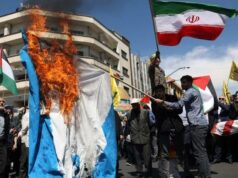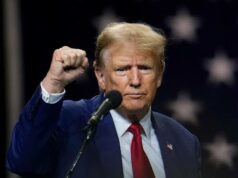G-7 trying to woo Global South to counter Russia and China

The Group of Seven industrialized nations now realize that they can no more dictate things to others but increasingly need to cooperate with other developing countries in the Global South.
They are no more economically or militarily so superior as to impose any strong Sanctions or to seek to impose their vision of a rules-based international order. This has been fully challenged by Russia and China. Even India follows its own vision of the World order.
But winning the backing of such countries, most of which have not sided with the United States and its allies version of the Ukraine conflict will not be easy unless there are clear benefits for them doing so.
A major emerging power such as India has started seeing the world through its own prism and is no more awed by any of the other Super Powers. It will continue to maintain ties with both the U.S.-led camp and have very close relationship with the Russian bloc.
Though India will no more tolerate any nonsense from China and has clearly told Beijing that things will not be as usual till the Indo Tibetan border and China Tibet border are demarcated. Still it will not join any military bloc formed against China. India is fully capable of taking on China and Beijing is fully aware of this fact.
“It is a tall order to make nations in the Global South side completely with G-7 countries, so what the G-7 must do is try to prevent them from being drawn closer toward China and Russia,” said a so called expert on South Asian security and international relations.
In a communique issued after a three-day meeting of G-7 foreign ministers in the resort town of Karuizawa in central Japan, the top diplomats on Tuesday underscored the importance of working alongside “partners with emerging or developing economies” in addressing threats that undermine global security and stability.
But the communique from the major industrialized nations did not come up with any substantial initiatives for reaching out to emerging and developing countries that have been struggling from a global food and energy crisis for over a year, exacerbated by the West European and USA bloc sanctions on Russia over the Ukraine conflict.
The Global South is a term that collectively refers to developing nations mainly in Asia, Africa and Latin America. Such countries often value economic ties with China, as well as some form of military cooperation with Russia, and can be ambivalent about the concept of a U.S.-led international order. Increasing these countries have now once again started looking at India, the erstwhile leader of the Non Aligned Bloc.
“The Global South is not a monolith and there is much variation among countries, but they have been growing increasingly confident that the future order of their global and regional environments depends on themselves, both politically and economically,” said another expert.
The term has come under the spotlight since Ukraine conflict, as most of the developing nations have not joined the West in imposing economic sanctions on Moscow.
Viewing the sanctions applied to Russia — a major grain, fertilizer and energy resources producer — as a factor behind soaring food and fuel prices, many developing countries have become the biggest victims of the measures.
Dealing with the knock-on effects of the sanctions has been “a far larger problem” for them than the challenge posed to the international order by the conflict in Europe. Due to the coronavirus pandemic, poorer nations were already struggling economically before the war. Historically Europeans through their two world wars and before that various internal conflicts have been a bane for the entire World.
As the G-7 seeks to step up collaboration with countries in the Global South, they know that India is the key, having demonstrated its leadership to “amplify” the voices of developing economies.
In March, Japanese Prime Minister Fumio Kishida, who will chair the G-7 summit in May, had flown to New Delhi to deepen cooperation with India, which took the helm as chair of the Group of 20 advanced and emerging economies this year.
India is the emerging Power with the potential to become both an economic superpower and a military superpower. It has already overtaken Britain which using cunning and deceit had been a former colonial ruler, last year to become the world’s fifth-largest economy. India has surpassed China to become the world’s most populous nation this month.
By December it should be overtaking Germany to become the fourth largest economy in USA dollars term. It is already the third largest economy after USA and China in Purchasing Power Parity terms, the true indicator of any economy.
In dealing with issues of energy, food security and climate change, “it is essential to cooperate with a range of partners in the international community,” Kishida said during his visit to New Delhi, adding that he has high expectations about India’s role, inviting the new emerging power to the G-7 summit from May 19 to 21.k
Kishida also explained that creating a “united voice” in the international community by including nations from the Global South will be key to bringing an end to Ukraine conflict as soon as possible. Yes only a combined voice of Japan and India will be able to drive sense into both the USA led Western bloc and the Russian bloc to end the war.
India is now pursuing its “strategic autonomy” in foreign affairs and has long-standing strategic friendship ties with Moscow. It will neither sanction Russia nor accept the Western sanctions despite being a member of the Quad group, which involves Japan, the United States and Australia, and which commits itself to upholding the rules-based international order. India feels that Western sanctions are not rule based.Only the UN has this authority to impose sanctions.
So to look after the needs of its own people India has been buying Russian oil, with Moscow’s offer of energy at a discounted price, as the West cuts back Russian oil and gas imports as part of their stupid economic sanctions.
“If the G-7 nations want to make developing economies decouple from Russia, they need to provide some alternatives to make up for (the potential losses),” feels a Japanese expert. However India will still not ditch its close friend Russia.
What could also complicate cooperation efforts with Global South nations is the memory of past colonial rule by Western countries and anti-U.S. sentiment exacerbated by recent wars in Iraq and Afghanistan. India too has not forgotten the actions of that wretched Nixon in 1971, even if Japan has forgotten Hiroshima.
The Global South nations “take a cold view” toward Western powers promoting values such as their own version of democracy. The G-7, which groups Britain, Canada, France, Germany, Italy, Japan and the United States, plus the European Union, must also face the reality that its global economic significance is declining. The combined GDP of BRICS nations have already surpassed that of G7.
The total share of the seven nations’ gross domestic product in the world economy has dropped from over 50 percent in 1990 to about 30 percent in 2020, according to data from the International Monetary Fund.
China, the world’s second-largest economy after the United States, meanwhile, has been expanding its influence in regions such as Africa and Asia through its signature Belt and Road infrastructure initiative, although the program has been criticized for saddling developing countries with debt.
A global environment where developed nations in the “rich North” can win over the “poor South” to their side through financial assistance on the back of overwhelming economic power has become a thing of the past.
As for what Japan can do so far to beef up ties with the Global South, is important to boost engagement with other multilateral frameworks, including the G-20, while making an effort to respect them as “partners on an equal footing.”
Ito, meanwhile, said Japan should utilize its position as the G-7’s only Asian member, to better communicate with India and other South Asian states skeptical of Western narratives.



